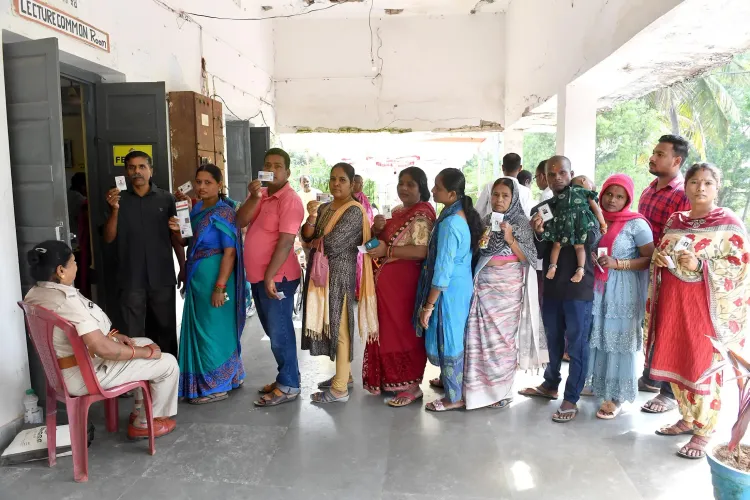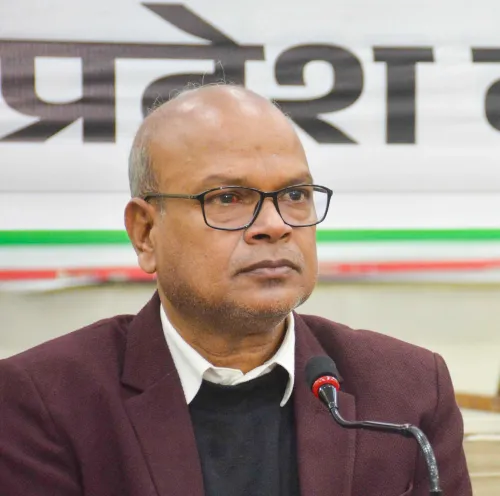Why is the CEO Urging Restraint During the Nuapada Bypoll Silence Period?

Synopsis
Key Takeaways
- Maintain silence: All stakeholders must refrain from campaigning during the silence period.
- Digital restraint: Avoid sharing political content on social media platforms.
- Voter integrity: A calm atmosphere is essential for voters to make informed choices.
- Legal compliance: Adhere to the guidelines set forth in the Representation of the People Act.
- Community responsibility: Citizens should act responsibly and avoid influencing others.
Bhubaneswar, Nov 7 (NationPress) In light of the intense campaigning for the vital Nuapada bypolls, Odisha's Chief Electoral Officer (CEO) R.S. Gopalan has made a strong appeal to all involved parties to exercise utmost restraint—both offline and online. He has requested that no active electioneering occur during the upcoming 48-hour ‘silence period’, which will commence from the evening of November 9. This measure aims to foster a calm and thoughtful environment for voters.
Outlining the rules for this silence period, Gopalan emphasized that political parties, candidates, and their supporters are strictly prohibited from sharing or posting any campaign-related material on social media platforms such as Facebook, X, WhatsApp, Instagram, and YouTube.
Citizens are also encouraged to act responsibly by refraining from forwarding or promoting any posts in private groups that might sway the electorate, ensuring the integrity of the electoral process.
The CEO has urged everyone to uphold digital restraint and help maintain a peaceful atmosphere for voters prior to polling, adhering to the principles of Section 126 of the Representation of the People Act, 1951.
No political advertisements are permitted in newspapers on polling day or the day prior unless they have been pre-certified by the Media Certification and Monitoring Committee (MCMC) at either the district or state level.
Furthermore, the publication of political ads in print media on polling day or the preceding day is also prohibited without MCMC pre-certification.
Moreover, all printed pamphlets and posters must clearly state the name and address of the printer and publisher, and copies must be submitted to election authorities as mandated by Section 127A of the Representation of the People Act, 1951.
Similarly, all political operatives and party workers brought in from outside the constituency are instructed to vacate the area immediately after the campaign period concludes.
The CEO has directed the District Election Officer and Superintendent of Police in Nuapada to inspect community halls and temporary accommodations to ensure that no outsiders remain there, establish border checkpoints to monitor vehicles entering from outside the constituency, and verify the identities of individuals to confirm whether they are local voters.
According to the stipulations of the RP Act, political parties are barred from organizing or participating in public meetings, processions, or roadshows, as well as displaying election-related content on television, cinema, etc., during the silence period.
In accordance with the guidelines, no election-related content aimed at influencing voters may be aired on television, digital media, or even radio.










